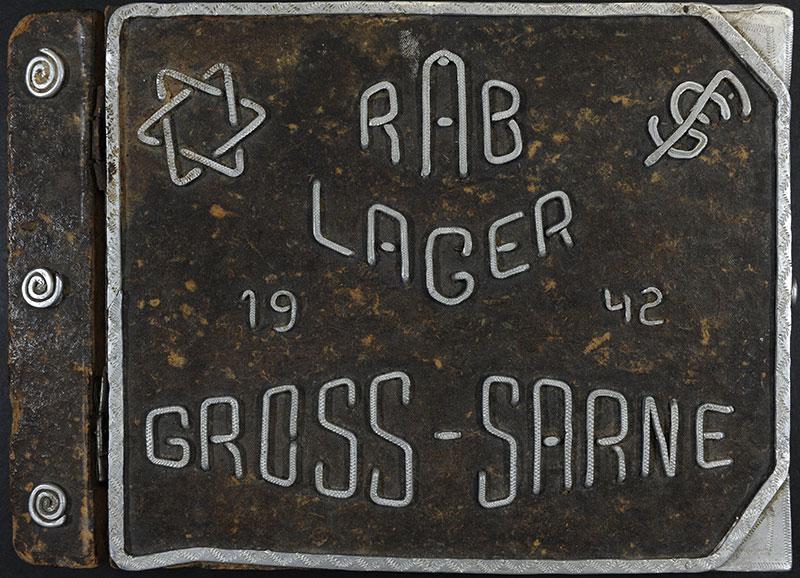

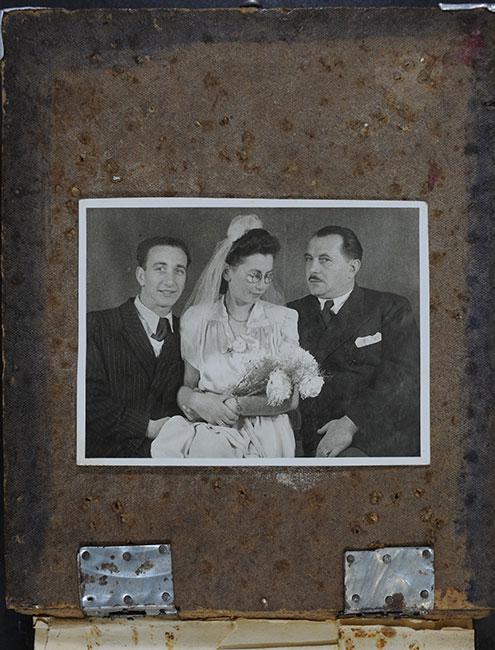

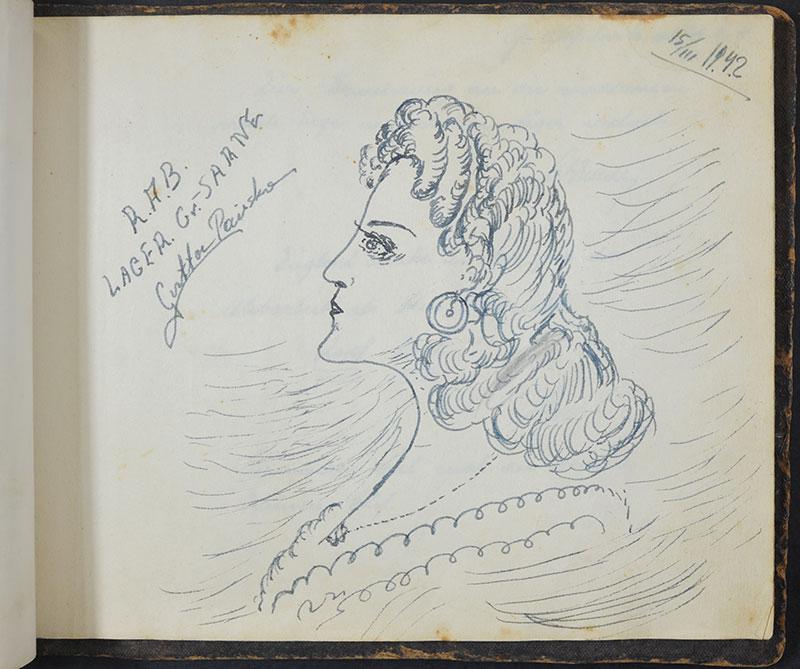

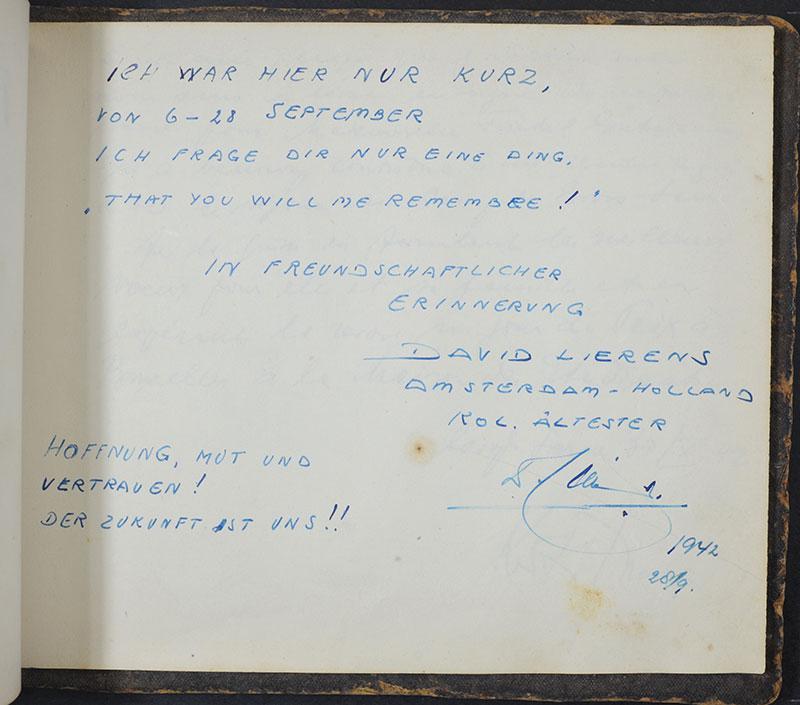

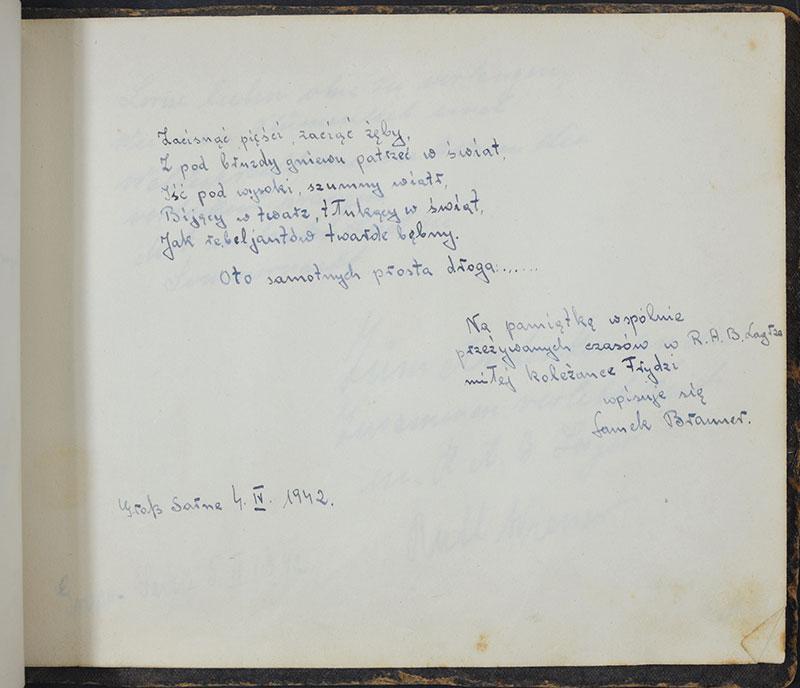

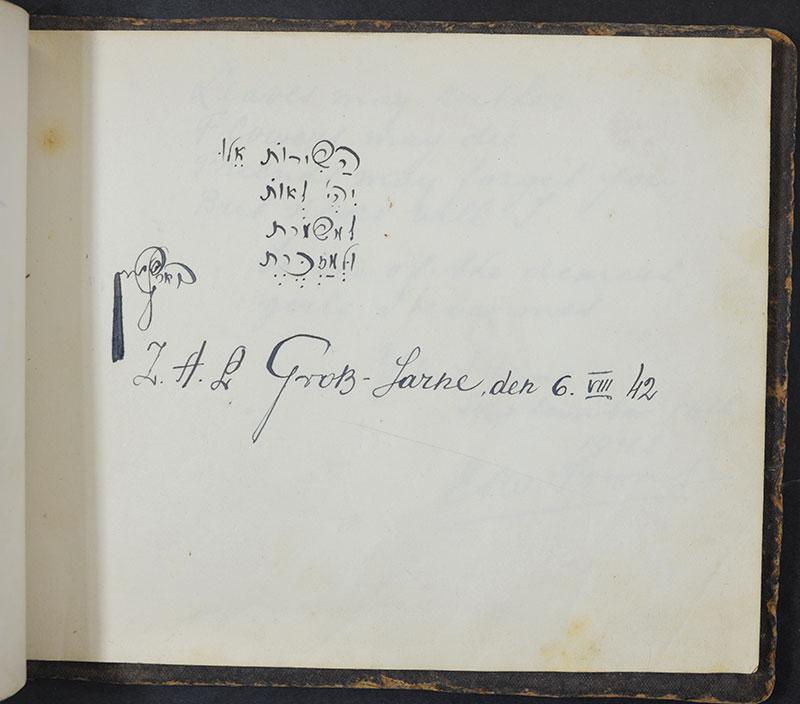

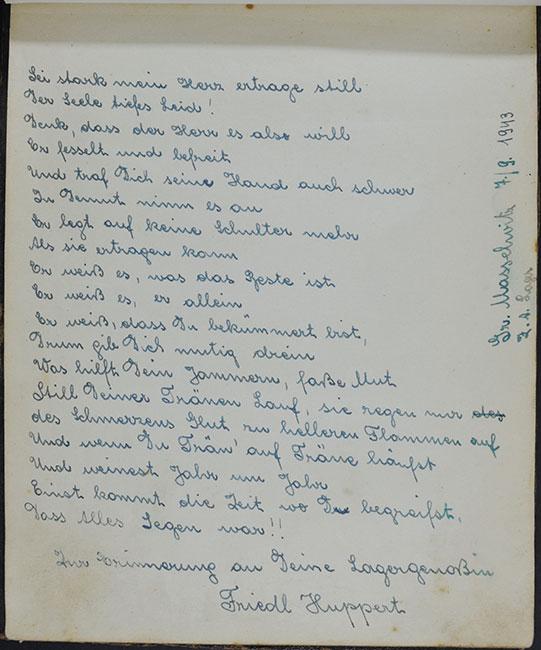

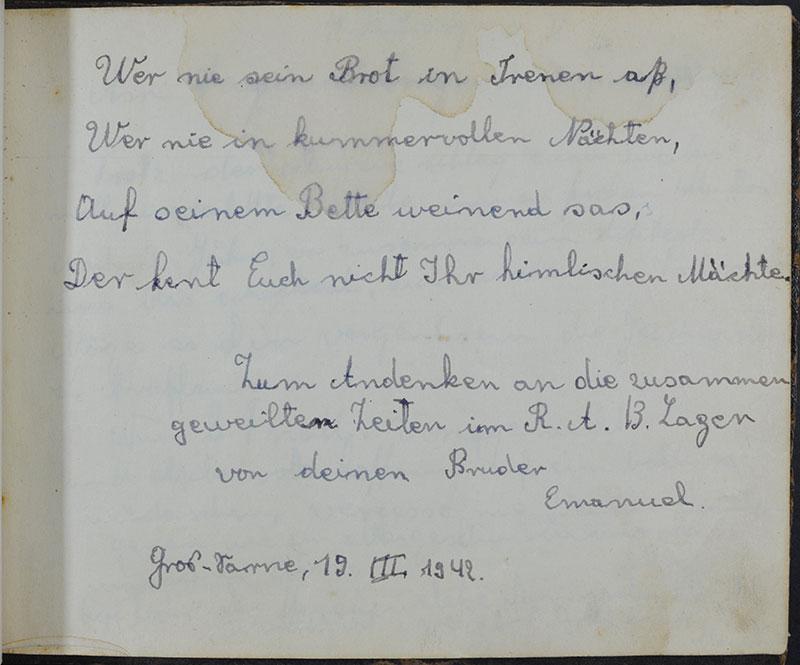

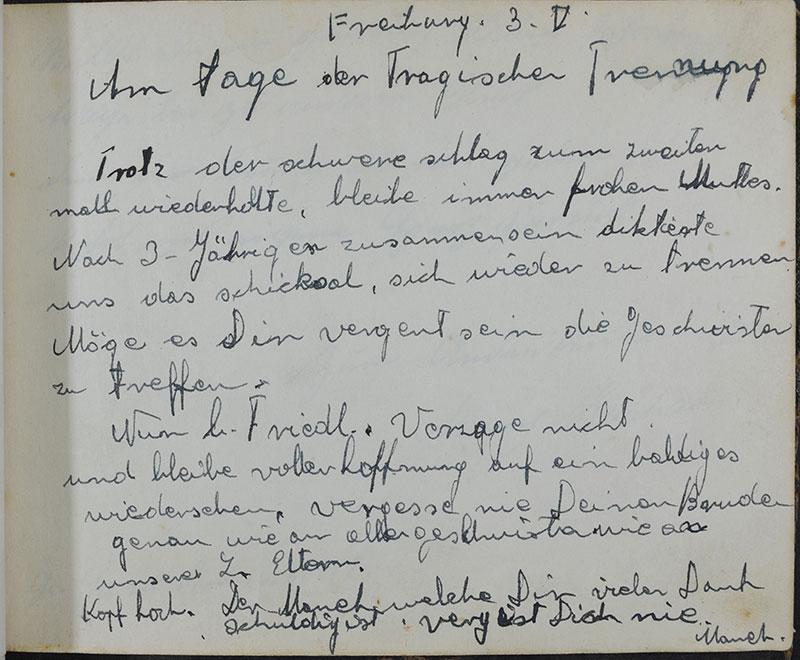

Sunday to Thursday: 09:00-17:00
Fridays and Holiday eves: 09:00-14:00
Yad Vashem is closed on Saturdays and all Jewish Holidays.
Entrance to the Holocaust History Museum is not permitted for children under the age of 10. Babies in strollers or carriers will not be permitted to enter.


















Friedl Gutman kept the album that was made for her by her fellow prisoners in Gross Sarne with her when she was sent from there to Gross Masselwitz and later to Freiburg. After she was liberated, the album became a dear reminder of the Jewish prisoners who had been with her in these camps, among them, her brother.
The album is made from unprocessed paper. The cover is made from wood and tin, and is decorated with a Star of David and the inscription “RAB Lager Gross Sarne, 1942”. The prisoners made the album from materials that they were able to obtain in the camp; they wrote songs, dedications, memories and farewell messages to Friedl.
Friedl was born in 1916 in Chorzow, Poland, one of Luis and Klara Gutman’s nine children. She met Izhak Poremba, her future husband, in Gross Sarne. They both survived and were reunited after the war in Stuttgart, Germany where they married in 1946 and where their son Yaakov was born. About two years later Friedl and Izhak immigrated to Eretz Israel where their daughter Ora was born.
Although Friedl kept the album throughout the years, she did not show it to anyone, even her children. Only when she was over eighty years old did she remove it from the cupboard where she had hidden it, and entrust it to her grandson Ben for posterity.
Friedl told Ben that it was an album that had been made for her by other inmates in the camps during the Holocaust. After her death the Poremba family was left with many questions regarding the content and nature of the book, in part because the dedications and farewell messages were written in four different languages: German, Polish, Dutch and Hebrew.
The pages of the album had begun to yellow and crumble – the book had undergone many upheavals during the Holocaust and the journeys afterwards, and had then been stored in a cupboard for many years. The family understood that if the book were to remain in their home, it would not last for much longer.
After seeing an advertisement for the Gathering the Fragments campaign, Yaakov Poremba decided to contact Yad Vashem for help in deciphering the contents of the album and analysing whether it would be able to reveal any details about his mother’s experiences during the Holocaust. He donated the album to Yad Vashem. Research aided by Yad Vashem’s extensive databases revealed a lot of information about the album, Friedl’s personal story and the experiences of many of the Jews from the same area during the Holocaust, some of whom survived, while others were murdered and their names are documented on Pages of Testimony in Yad Vashem’s Names Database.
The dedications in the book reveal the frame of mind of some of the prisoners incarcerated in the three camps to which Friedl was sent, their personal feelings and their hopes and fears living under the Nazi regime in the camps.
For some of them, their inscription in the album is the last written record of their words.
Roza Danziger wrote the following words to Friedl in Gross Sarne in March 1942:
If you want to live a happy life,
Consider the happiness of others
Because all the happiness that we give
Comes straight back to our hearts.
In memory of our days together in Gross Sarne camp
Roza Danziger
The next two dedications were also written in Gross Sarne:
On 4 April 1942 Sam-Samek Brauner wrote:
Make fists, bare your teeth
Walk under the wind that is hitting you in the face.
March to the notes of a marching song like
Real soldiers.
That is the straight path of the lonely.
"I hope that you remember me" wrote David Lierens to Friedl on 28 September 1942. A search of Yad Vashem’s databases reveals that Lierens, a businessman who lived in Amsterdam, was deported to the camps and his property was confiscated. Three months after he wrote this dedication in the album, David perished in the Spytkowice camp.
About a year later in Gross Masselwitz, Friedel Hupert wrote this farewell poem in the album:
Be strong, my heart will cope silently
A deep sadness clutches my soul
Remember, G-d wants this
He binds and frees
And even if His hand has struck you mightily
He will not place more on your shoulders than you can bear.
He knows what is best for you,
He knows, only He.
He knows that you are suffering
So carry your pain with strength.
For what benefit is there in crying
Be strong, halt the flow of your tears,
The tears just accompany your pain to the fire of blazing grief.
If you drop one tear after another,
And if you cry year after year,
The day will still come when you will see,
That everything was for a blessing.A keepsake from your friend in the camp,
Friedel HupertGross Masselwitz forced labor camp 7/9/43
Of the thirty people who wrote dedications in the album, twelve survivors were located after it had been donated to Yad Vashem.

Thank you for registering to receive information from Yad Vashem.
You will receive periodic updates regarding recent events, publications and new initiatives.

"The work of Yad Vashem is critical and necessary to remind the world of the consequences of hate"
Paul Daly
#GivingTuesday
Donate to Educate Against Hate


Worldwide antisemitism is on the rise.
At Yad Vashem, we strive to make the world a better place by combating antisemitism through teacher training, international lectures and workshops and online courses.
We need you to partner with us in this vital mission to #EducateAgainstHate
The good news:
The Yad Vashem website had recently undergone a major upgrade!
The less good news:
The page you are looking for has apparently been moved.
We are therefore redirecting you to what we hope will be a useful landing page.
For any questions/clarifications/problems, please contact: webmaster@yadvashem.org.il
Press the X button to continue



